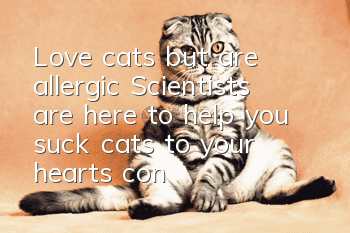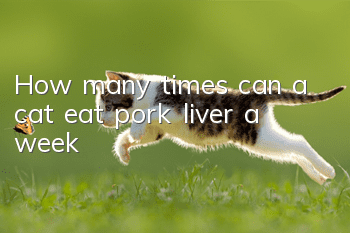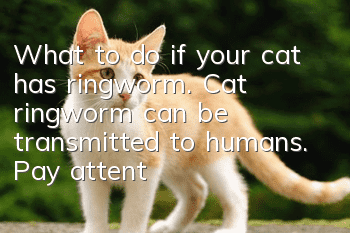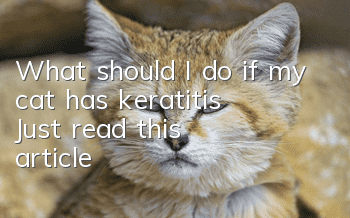Love cats but are allergic? Scientists are here to help you suck cats to your heart’s content!

For people who like cats but are allergic to cats, on the one hand they want to bury their faces in the cat’s soft belly, but on the other hand they have to endure allergy symptoms such as itchy eyes, runny nose, and asthma. The saddest thing is that when you want to hug a cat, you have to let it go.
Scientists have finally taken action on this. By analyzing the causes of allergies, they have developed a solution to allergies.
Swiss HypoPet AG
Swiss HypoPet AG published a paper stating that scientists have developed an anti-allergic vaccine.
Allergy to cats is mainly caused by a protein called FEL-D1. FEL-D1 exists in the fur of animals and will attach to cat dander. When the dander falls off and is inhaled by humans, the human immune system will be triggered and an allergic reaction will occur.
The paper states that a vaccine (HypoCat) has been developed against feline allergens (FELD 1). The vaccine will first activate the cat's own immune system to destroy FEL-D1, significantly reducing the production of harmful proteins. Cats will be vaccinated with a "cat allergy vaccine" without any apparent toxicity, and owners of allergic cats will reduce their risk of chronic diseases such as asthma.
Nestle Purina
Coincidentally, as a giant in the global pet food industry, Nestlé Purina is also working to solve the problem of cat allergies.
The paper led by Nestlé Purina researchers was published in the journal Immunity, Inflammation and Disease.
Nestle Purina hopes to add antibodies to cat food that specifically target the main allergenic protein in cats. The ingredients in the food will change Fel d1 so that the human immune system cannot recognize it, thus reducing allergic reactions.
Researchers fed 105 cats this antibody for 10 weeks. After that, the amount of active Fel d1 protein in the cats' hair dropped by an average of 47%.
The researchers also conducted a small pilot study with 11 people who were allergic to cats. The humans were exposed in a testing chamber to the hair of cats fed the antibody feed. The results showed that these people's allergic symptoms were reduced. The cats fed the new cat food did not feel as itchy and their eyes no longer watered.
The picture is from the Internet, not an experimental photo
Michael Blaiss, executive medical director of the American College of Allergy, Asthma and Immunology, said Nestlé Purina’s approach to cat allergies is both interesting and exciting.This is unusual because conventional allergy treatments would cause the body to produce antibodies, but suppress allergies in the human body because these molecules are broken down in the intestines.
Bryce predicts that the new treatment may help people with mild cat allergies, but those with severe symptoms may not be so lucky and are unlikely to help reduce half of the active allergens. Some people cannot tolerate any amount of the Fel d1 protein without symptoms, he said.
What's more, different cats can naturally produce very different amounts of Fel d1. For this reason, Bryce said: "The effect of this antibody depends on the level of Fel d1 production in the cat and the severity of the patient's allergic symptoms."
Currently, Nestlé Purina does not offer products containing this antibody. However, the company plans to conduct further research to determine its specific effectiveness in reducing cat allergens in the home.
- What to do if Himalayan cats have urinary stones
- How old is a five-year-old cat to a human?
- How to take care of a two-month-old cat that has just arrived at a new home
- Cat is hoarse but looks healthy
- The cat is weak and lies down all the time
- What should I do if my tortoiseshell cat has persistent diarrhea?
- Teach you how to train pet cats to jump through rings? Pet cat training techniques!
- Why does a cat vomit yellow water and vomit cat food?
- What should I do if cat moss recurs and the old ones heal but new ones appear again?
- What issues should you pay attention to when your cat is pregnant?



